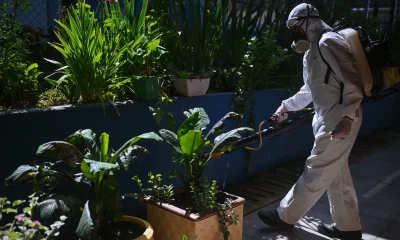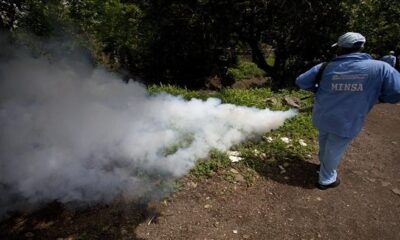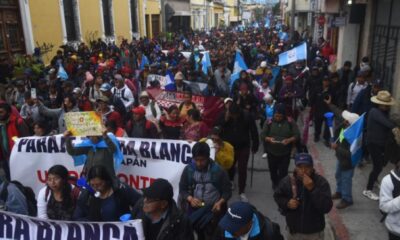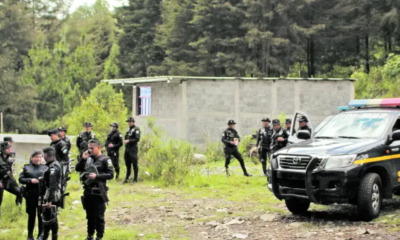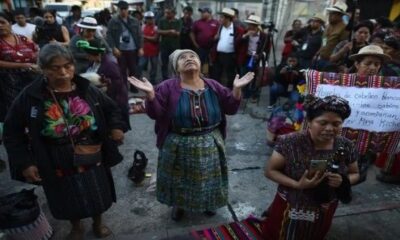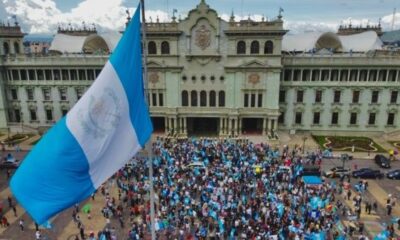Central America
Threats from the migratory route in Guatemala: dengue, arrests and climate change
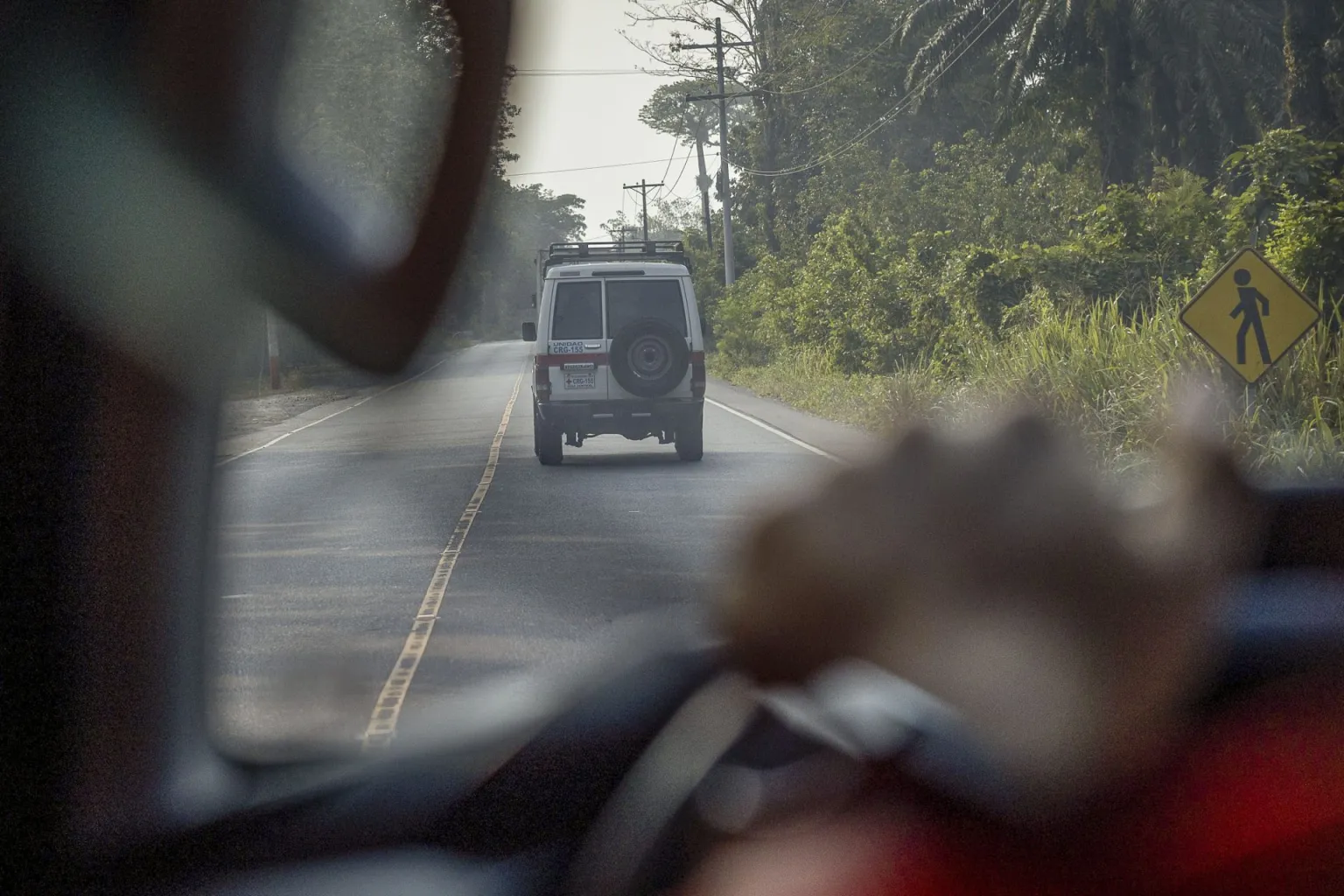
Thousands of migrants cross the border between Honduras and Guatemala daily on their way to the United States, facing the threat of tropical diseases such as dengue, the arrest of security forces and their subsequent deportation or the impact of a route hit by climate change.
On the border of El Corinto, between Guatemala and Honduras, the country’s Red Cross serves migrants who need medical assistance.
“Our job is to alleviate the suffering a little and dignify the lives of people who are in transit,” explains to EFE Mariana Bonilla, who works with the Red Cross at the Care Center for Migrants and Refugees (CAPMIR), located on the Guatemalan side of the border.
Every morning, Bonilla, 31, and the rest of her team, track the border road surrounded by African palm, banana plantations and the imposing Motagua River, the largest in Guatemala, in search of groups of migrants to guide them and indicate the points where they can receive support.
Within its center of attention, supported by the International Federation of Red Cross and Red Crescent Societies (IFRC), migrants receive both medical and psychosocial assistance. “Many come with traumas from their passage through the Darién jungle” between Colombia and Panama, explains Bonilla.
Two kilometers after crossing the border, on the migratory route, is the village of Jimeritos, a community made up of farmers dedicated mainly to the cultivation of bananas that for six years has turned its small communal room into a refuge for migrants to rest.
“We are motivated to work with migrants. They leave their countries to seek an improvement for their family and here we give them what we can, because we do not know when we will have the same need,” explains Felicita Palencia, a resident of Jimeritos who was trained by the Red Cross to take care of migrants.
The community lounge has a bedroom with capacity for 12 people and, according to the leaders of the village, there are nights where they receive up to 30 migrants who seek refuge before continuing their journey to the Mexican border of Tecún Umán, located about 540 kilometers at the other end of the country.
Community community members pay attention despite the difficulties they are going through, such as strong dengue epidemics that affect the department of Izabal, where in 2023 more than 500 cases were registered and the region was put on red alert by the health authorities, a disease from which migrants are not freed either.
On May 2, in the community room, the Red Cross gathered the children of the Jimeritos public primary school to give them a talk about hygiene and sanitation measures to eliminate the mosquito that transmits dengue, as well as tools to identify the symptoms of this disease.
Carlos Linares, who has lived in this migrant host village for 42 years, assures EFE that the biggest concern for them is climate change, since the rainy season is approaching and in years such as 2001 and 2020 many houses were destroyed by storms.
“This part of the road is the most difficult to get to the United States, because there are a lot of police and they can return us to Honduras,” Mario Alvarado, a Honduran migrant who decided to look for the “American dream,” explains to EFE.
With temperatures of 40 degrees, Alvarado crossed the border, bordering the Motagua River and the African palm plantations, to end up arrested by the Guatemalan authorities.
Alvarado is the third time he has been on his way to the United States. He does it with his compatriot Danny Gámez, the same one with whom a few months ago they were deported from Texas, United States, after a journey that allowed them to work in the North American nation as painters.
Like Alvarado and Gámez, thousands of migrants seek to cross Guatemala every year and so far in 2024 alone, almost 8,000 have been arrested by the security forces for their subsequent deportation, according to figures from the Guatemalan Migration Institute (IGM).
“It doesn’t matter how many times we are deported. If there are no conditions to live in Honduras, we will always find a way to leave again,” Alvarado reiterates, before moving away between the path of a plantation with his journey companion.
Central America
Guatemala Police Arrest Prison Guard Caught in the Act of Extortion

Guatemala’s National Civil Police (PNC) arrested a suspected extortionist in the act during an operation carried out in the department of Quiché, authorities reported.
According to the police report, the arrest took place in Zone 1 of Santa Cruz del Quiché after officers responded to a citizen complaint. Agents from Precinct 71 identified the suspect as Encarnación “N”, 41, who was serving as a guard in the Guatemalan Penitentiary System.
The suspect was caught while attempting to collect a package simulating an extortion payment totaling 25,000 quetzales. Police intervened at the precise moment the money was being handed over, allowing authorities to document the crime in flagrante delicto.
Following the operation, the detainee was placed at the disposal of the competent courts to face criminal proceedings.
The PNC emphasized that such operations aim to dismantle criminal structures involved in extortion, regardless of whether those implicated are linked to state institutions, and urged the public to continue reporting these crimes through confidential channels.
Central America
Honduras swears in conservative president Asfura after disputed election

Conservative politician Nasry Asfura assumed the presidency of Honduras on Tuesday with an agenda closely aligned with the United States, a shift that could strain the country’s relationship with China as he seeks to confront the economic and security challenges facing the poorest and most violent nation in Central America.
Asfura’s rise to power, backed by U.S. President Donald Trump, marks the end of four years of left-wing rule and secures Trump another regional ally amid the advance of conservative governments in Chile, Bolivia, Peru, and Argentina.
The 67-year-old former mayor and construction businessman was sworn in during an austere ceremony at the National Congress, following a tightly contested election marred by opposition allegations of fraud and Trump’s threat to cut U.S. aid if his preferred candidate did not prevail.
Grateful for Washington’s support, Asfura—who is of Palestinian descent—traveled to the United States to meet with Secretary of State Marco Rubio, before visiting Israeli Prime Minister Benjamin Netanyahu.
“We need to strengthen relations with our most important trading partner,” Asfura said after being declared the winner of the November 30 election by a narrow margin, following a tense vote count that lasted just over three weeks.
Central America
Bukele leads public trust rankings as UCA survey highlights gains in security
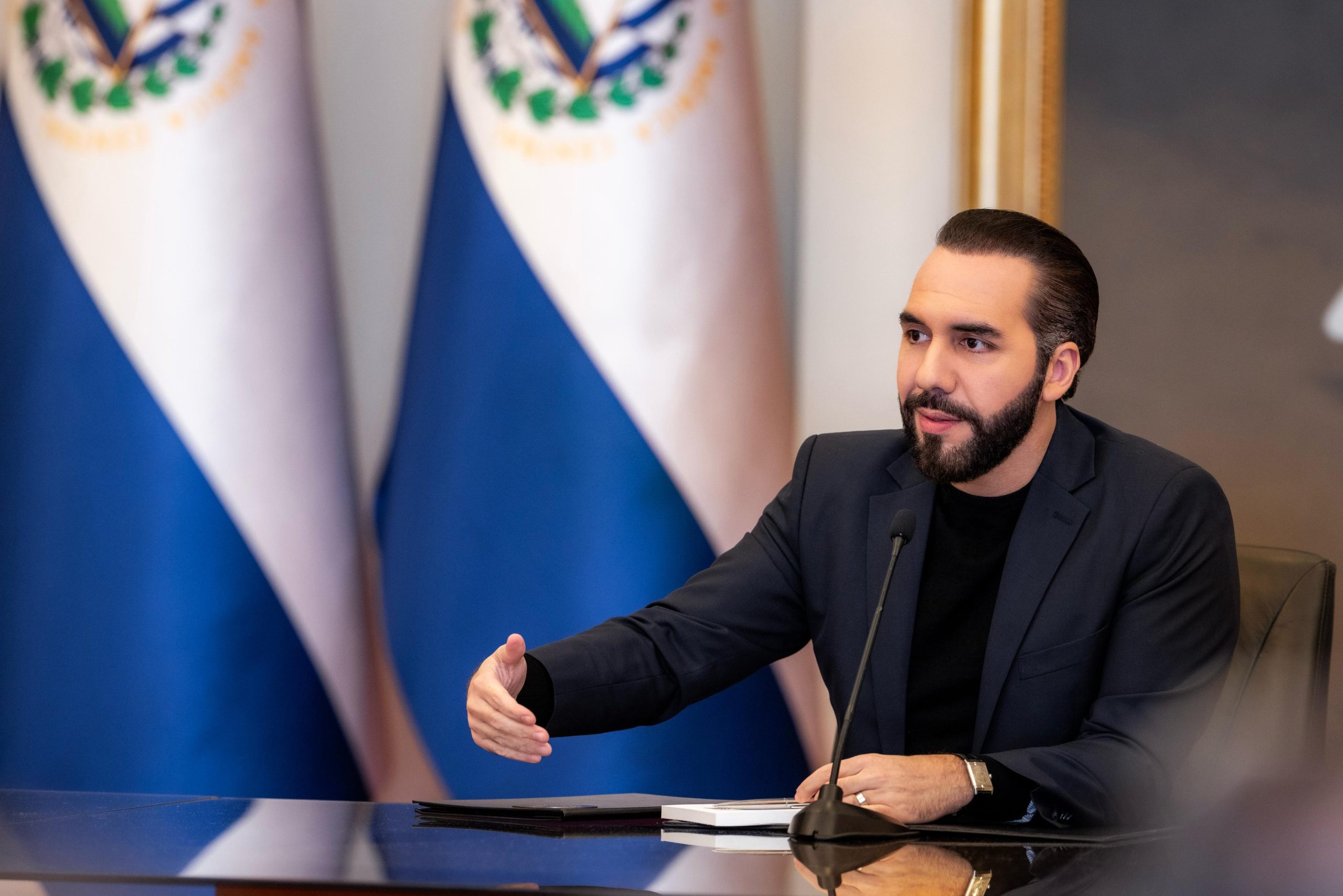
Results from the UCA Survey, conducted by the José Simeón Cañas Central American University (UCA), were presented on Tuesday, offering an assessment of the performance of the Government of El Salvador during 2025 and measuring public perception on key issues such as security and the economy.
According to the survey, President Nayib Bukele received an average score of 8.39 for his performance in 2025. In the category measuring levels of trust in national institutions and social actors, Bukele led the ranking with 77% public confidence, surpassing the Central Government (69.6%), the Armed Forces (69.1%), the National Civil Police (PNC), and the Catholic Church (58.4%), among others.
The survey also highlights an upward trend in the president’s evaluation. While Bukele scored 8.15 for his performance in 2024, the most recent assessment of his sixth year in office showed an increase to 8.39.
Meanwhile, the Government of El Salvador as a whole was rated 8.33 for its performance during 2025.
Respondents identified public security as the area showing the greatest progress in the country, with 62.7% recognizing improvements in this sector, according to the UCA survey released on Tuesday.
-

 Central America2 days ago
Central America2 days agoGuatemala seizes over a ton of cocaine hidden in flour at Pacific port
-

 Central America5 days ago
Central America5 days agoGuatemala’s president rules out negotiations with inmates after prison riots
-

 International4 days ago
International4 days agoTrump-Era Defense Plan Prioritizes Border Security and Scales Back Global Commitments
-

 Internacionales5 days ago
Internacionales5 days agoMajor winter storm threatens “catastrophic” ice and snow across much of the U.S.
-

 International4 days ago
International4 days agoBogotá and Quito Seek Dialogue After Tariffs and Power Cut Escalate Tensions
-

 International3 days ago
International3 days agoDelcy Rodríguez seeks political agreements after Maduro’s ouster
-

 International5 days ago
International5 days agoGuatemala considers sending high-risk gang members to military prisons
-

 International2 days ago
International2 days agoHistoric snowstorm paralyzes Toronto after 60 centimeters of snow
-

 International2 days ago
International2 days agoSpain’s irregular migrant population rises to 840,000, study finds
-

 International3 days ago
International3 days agoFederal immigration agents kill man in Minneapolis, sparking protests and outrage
-

 Central America20 hours ago
Central America20 hours agoGuatemala Police Arrest Prison Guard Caught in the Act of Extortion
-

 International5 days ago
International5 days agoRights group says over 5,000 killed in Iran protests, mostly civilians
-

 Sin categoría20 hours ago
Sin categoría20 hours agoEight Killed in Series of Armed Attacks in Ecuador’s Manabí Province
-

 International20 hours ago
International20 hours agoWinter Storm Fern Leaves 30 Dead and Over One Million Without Power Across the U.S.
-

 Central America21 hours ago
Central America21 hours agoHonduras swears in conservative president Asfura after disputed election
-

 International21 hours ago
International21 hours agoDoomsday clock moves to 85 seconds before midnight amid rising global risks
-

 International2 days ago
International2 days agoRights group says nearly 6,000 killed in Iran protest crackdown
-

 Central America21 hours ago
Central America21 hours agoBukele leads public trust rankings as UCA survey highlights gains in security
-

 International21 hours ago
International21 hours agoSpain approves plan to regularize up to 500,000 migrants in Historic Shift
-

 International2 days ago
International2 days agoVenezuela frees at least 80 political prisoners, NGO says
-

 Sin categoría21 hours ago
Sin categoría21 hours agoEl Salvador Launches Fourth Year of Ocean Mission to Protect Marine Ecosystems
-

 International2 days ago
International2 days agoEU launches new probe into X over AI-generated fake nude images
-

 International2 days ago
International2 days agoSevere winter storm grips U.S., leaves multiple dead as extreme cold persists
-

 International2 days ago
International2 days agoFrance debates ban on social media for children under 15





























































